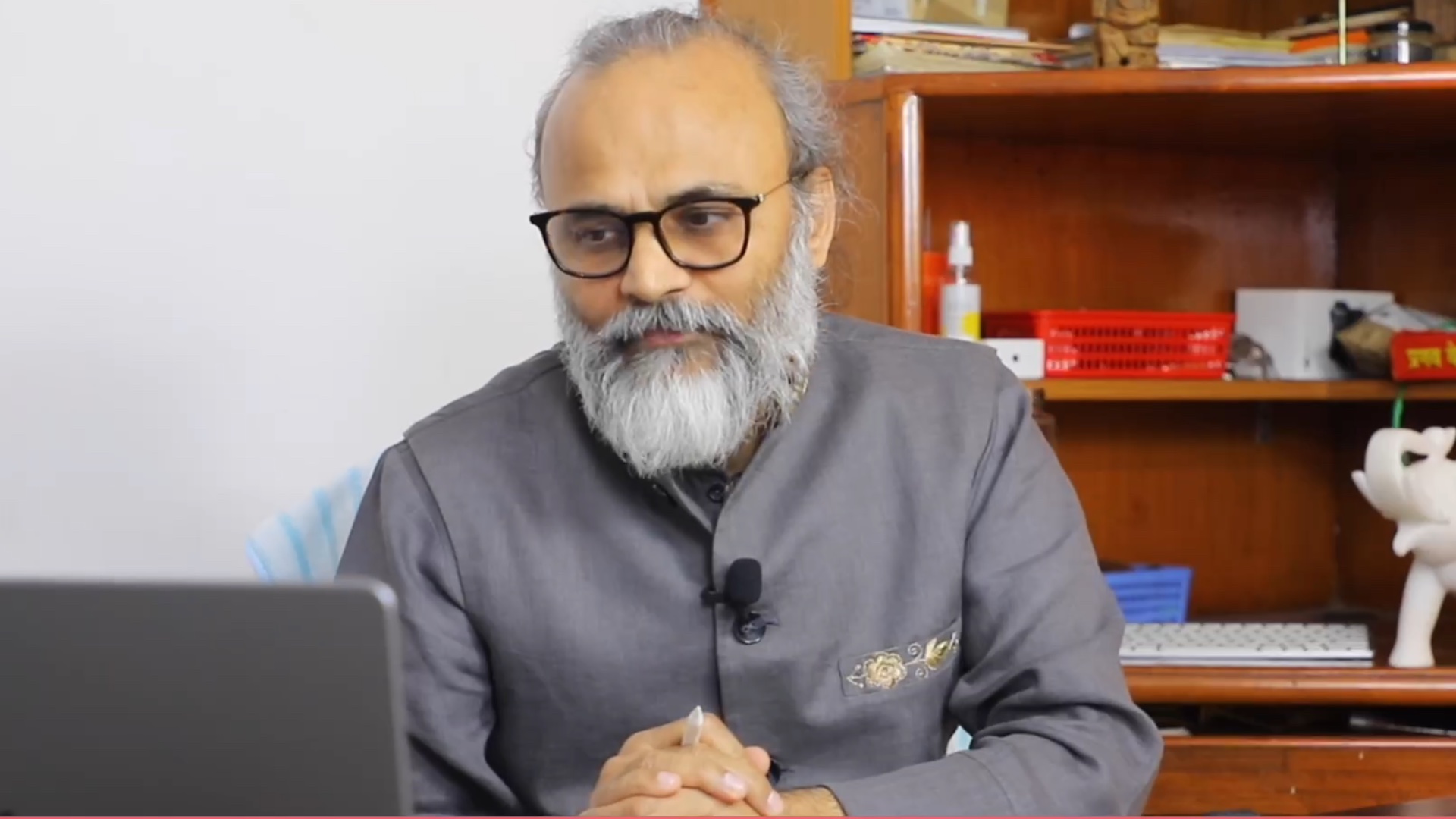
Stress Due to Forced Concentration
1 year ago By Yogi AnoopCan Increasing Concentration Cause Diseases?
Generally, the mind cannot naturally remain concentrated on any object for an extended period. It is also true that some individuals can focus on a subject for a longer duration. However, the primary issue here is not about increasing or decreasing concentration but about the reactions of the senses during concentration. These reactions can increase the likelihood of various diseases.
It is true that during concentration, all senses experience natural stress, and the subtle organs of the body are also affected. However, when individuals with average intelligence use concentration to achieve a goal, the senses experience excessive pressure and strain. Even the upper part of the stomach experiences tension. These reactions are most commonly observed in people who force their minds to concentrate to achieve their objectives or complete a task. This forced concentration leads to stress in the senses instead of practice, which eventually manifests as diseases in the future.
I have observed this issue even in practitioners of yoga, pranayama, and especially meditation. I have noticed problems arising when individuals try to fix their gaze on an object for an extended time without blinking. Some practitioners who focus their attention on the third eye, i.e., the center of the forehead, also experience several mental problems.
Effects of Forced Concentration on the Body
When an individual forcefully attempts to concentrate their senses and mind on a single point, it directly impacts not only the brain but also other parts of the body, such as the eyes, nervous system, digestive system, and muscles.
• Effects on the Eyes: Continuously focusing on an object or concentrating for long periods puts excessive strain on the eye muscles, leading to heaviness, fatigue, blurred vision, and headaches.
• Effects on the Digestive System: Excessive mental concentration can create tension in the upper stomach, leading to gastric issues, indigestion, constipation, and acidity.
• Effects on the Nervous System: Forced concentration can create an imbalance in the nervous system, leading to sleep disturbances, irritability, and increased stress.
• Muscle Strain: Prolonged focus in a single position can cause stiffness in the neck, shoulders, and spine, leading to back pain and headaches.
Mental Stress and the Negative Effects of Forced Focus
When a person tries to make their brain excessively active, it starts functioning in a fixed pattern, which can lead to serious issues:
• Cognitive Fatigue: Constant mental pressure tires the brain, reducing focus and memory capacity.
• Sleep Disorders: Mental stress disrupts the sleep cycle, leading to insomnia, restlessness, and sleep disturbances.
• Mood Swings and Irritability: Mental exhaustion can cause mood swings, anger, and depression.
• Emotional Imbalance: Forced concentration can make a person’s thoughts rigid, affecting their social and family life.
Scientific Perspective: Impact of Excessive Concentration on the Brain
According to neuroscience, the prefrontal cortex of the brain is responsible for concentration and decision-making. When a person tries to increase their concentration forcefully, this region becomes hyperactive, leading to an increase in the stress hormone cortisol.
• High Cortisol Levels: This hormone increases stress and can cause various issues such as elevated heart rate, high blood pressure, and digestive disorders.
• Dopamine Imbalance: Excessive efforts to enhance concentration can disrupt dopamine levels, causing mental fatigue, depression, and anxiety.
• Changes in Brain Wave Patterns: Excessive focus activates beta waves in the brain, which can increase stress and restlessness.
Balanced Practice of Concentration
Yoga and meditation require concentration, but forcing it can lead to negative effects. Following the right methods and a balanced approach can prevent these problems.
• Focus Naturally: Whenever practicing concentration, do it naturally rather than forcefully.
• Take Breaks: After concentrating for a long time, take short breaks to allow the brain to relax.
• Focus on Breathing: Deep and controlled breathing during meditation helps keep the brain calm and regulates cortisol levels.
• Adopt a Balanced Routine: Include yoga, pranayama, and light exercise in your daily routine to maintain mental and physical balance.
I believe that the best concentration is one in which relaxation increases as focus deepens. This type of concentration not only enhances one’s personality but also prevents diseases. It has a profound impact on the nervous system, digestive system, and muscles. From a scientific perspective, excessive cortisol and dopamine imbalances in the brain lead to mental fatigue, irritability, and insomnia. Therefore, practicing balanced and natural concentration is beneficial for overall health.
Recent Blog
Copyright - by Yogi Anoop Academy
